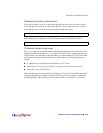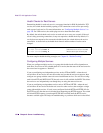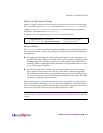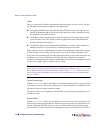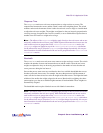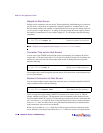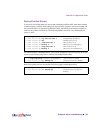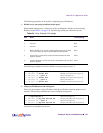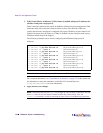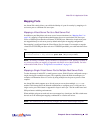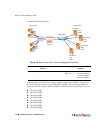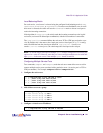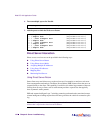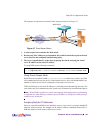
Web OS 10.0 Application Guide
136
Chapter 6: Server Load Balancing
212777-A, February 2002
Extending SLB Topologies
For standard SLB, all client-to-server requests to a particular virtual server and all related
server-to-client responses must pass through the same Web switch. In complex network topol-
ogies, routers and other devices can create alternate paths around the Web switch managing
SLB functions (see Figure 6-4 on page 122). Under such conditions, the Web switch with
Web OS provides the following solutions:
n Proxy IP Addresses
n Mapping Ports
n Direct Server Interaction
n Delayed Binding
Proxy IP Addresses
In complex network topologies (see Figure 6-4 on page 122), SLB functions can be managed
using a proxy IP address on the client switch ports.
When the client requests services from the switch’s virtual server, the client sends its own IP
address for use as a return address. If a proxy IP address is configured for the client port on the
switch, the switch replaces the client’s source IP address with the switch’s own proxy IP
address before sending the request to the real server. This creates the illusion that the switch
originated the request.
The real server uses the switch’s proxy IP address as the destination address for any response.
SLB traffic is forced to return through the proper switch, regardless of alternate paths. Once
the switch receives the proxied data, it puts the original client IP address into the destination
address and sends the packet to the client. This process is transparent to the client.
NOTE – Because requests appear to come from the switch proxy IP address rather than the cli-
ent source IP address, the network administrator should be aware of this behavior during
debugging and statistics collection.
The proxy IP address can also be used for direct access to the real servers (see “Direct Server
Interaction” on page 142).




